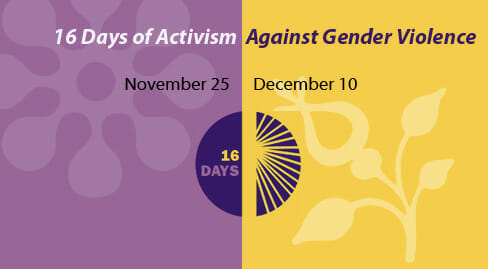
In one out of five cases, children are physically harmed in gender violence

The two most common forms of gender violence in Namibia are domestic violence and rape, with women making up more than 90% of the victims.
Quoting a Sister Namibia report, Ilke Akwenye of Poiyah Media said women who are the breadwinners of their households have a higher risk of falling victim to gender violence. “This shows that violence against women is just not seen as an expression of dominance over women, but also as rooted in male vulnerability from social expectations of manhood.”
Akwenye stated that their concern over gender violence is motivated by the 16 Days of Activism campaign that runs worldwide. The campaign places the spotlight on this delicate topic, encouraging women who are affected by gender violence, not to keep quiet but to use the available legal and social resources to report every single incident.
“We allow it to defeat us by not reporting these cases to the police. Even though this may be the most traumatizing experience, it is something that needs to be done for the next woman or man. If criminal cases are made, this will warn the next woman or man who enters the life of the perpetrator. If we shut our mouths and allow rumours to spread, no concrete evidence can allow the next victim to make a solid decision,” she said.
As for exposing a child to acts of domestic violence, Akwenye said parents have to reminded of the good example they must be to their children.
“Mothers or fathers should exercise their right to apply for a protection order if they feel that their life is in danger,” she said adding that the Domestic Violence Act defines physical abuse, economic abuse, intimidation, emotional, verbal or psychological abuse, and exposing a child to acts of domestic violence, as criminal.
In one out of five cases of domestic violence, children have been harmed or threatened by the abuser, according to a 2012 Legal Assistance Centre report.
“We should be reminded that exposing children to domestic violence feeds gender violence. We should take note that actions speak louder than words, and our future generation will emulate what they have been exposed to” Akwenye said.
“Even though our nation may be keen on prioritizing the social and economic development of Namibia, we need to start with the basics when our women, men and children die at the hands of their loved ones,” she concluded.













































